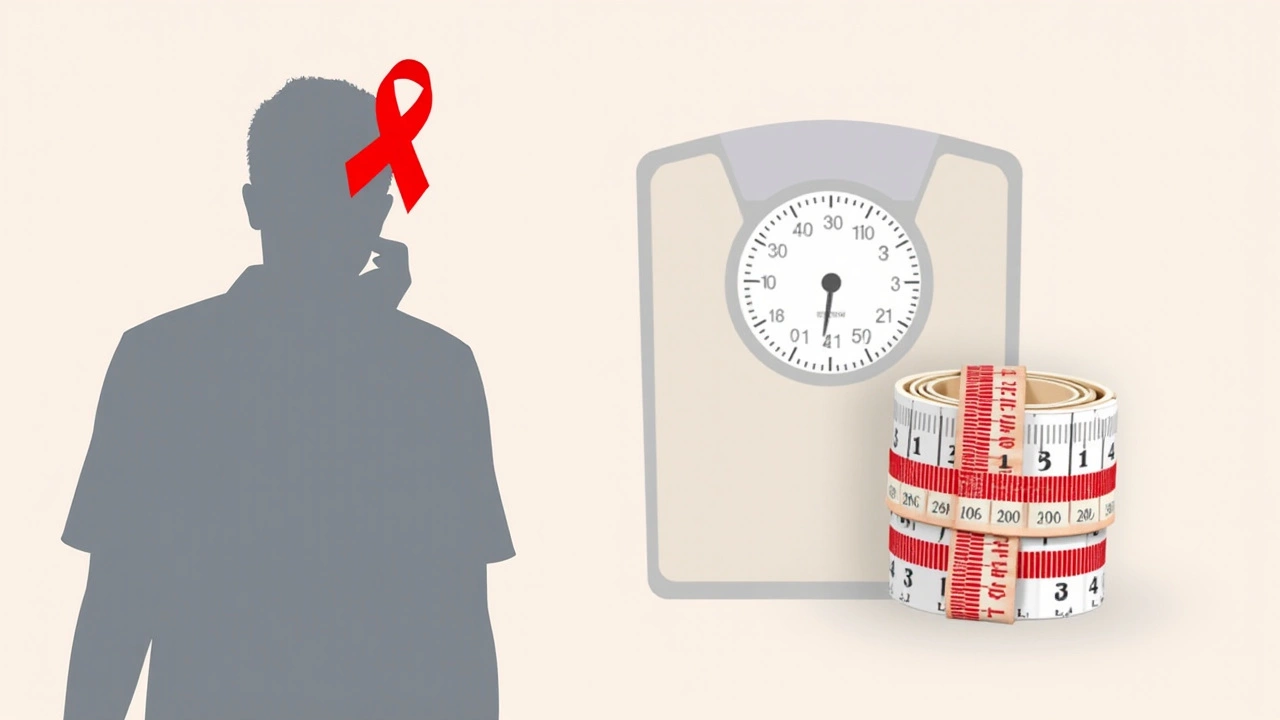Cancer Awareness: Why It Matters and How to Stay Informed
Cancer feels like a big, scary word, but the good news is that a lot of it can be prevented or caught early. Knowing the basics doesn’t require a medical degree – just a few minutes a day to look at your habits, notice changes in your body, and talk to the right people. This guide gives you straight‑forward steps you can start using right now.
Spot the Signs Early
Most cancers show up as a small change that’s easy to miss. That’s why paying attention to your body matters. Look for lumps that don’t go away, sores that linger, unexplained weight loss, or persistent fatigue. If you notice a change that lasts more than two weeks, schedule a doctor’s visit. Even if it turns out to be harmless, you’ll have peace of mind.
Screenings are another powerful tool. For many cancers, regular tests can find abnormal cells before they turn into a full‑blown tumor. Breast cancer screening (mammograms) is recommended every two years for women over 40. Colon cancer checks (colonoscopy or stool tests) start at 45 for most people. Prostate and skin checks are also worth discussing with your doctor, especially if you have a family history.
Don’t forget lifestyle clues. Smoking, heavy drinking, and a diet high in processed foods raise risk for several cancers. If you notice a habit that’s hard to shake, think of it as a warning sign. Small changes now can stop bigger problems later.
Simple Steps to Reduce Risk
Eating more fruits, vegetables, and whole grains adds antioxidants that help protect your cells. Aim for at least five servings of colorful produce a day – the brighter the plate, the better. Cutting back on red meat and processed meat also lowers the chance of colorectal cancer.
Physical activity is a free, low‑stress way to keep cancer at bay. Even a brisk 30‑minute walk five times a week can boost your immune system and keep weight in check. Maintaining a healthy weight reduces the risk for breast, uterine, and many other cancers.
Sun safety is a must. UV rays are a leading cause of skin cancer, so wear sunscreen with at least SPF 30, reapply every two hours, and seek shade during peak sun hours. A hat and sunglasses add an extra layer of protection without looking clunky.
Quitting smoking is perhaps the single most effective move you can make. The body starts repairing damage within weeks, and long‑term risk drops dramatically. If you need help, ask your doctor about nicotine patches, gum, or counseling programs – many are free.
Alcohol in moderation is key. For men, that means no more than two drinks a day; for women, one drink. Excessive drinking is linked to liver, breast, and throat cancers.
Finally, build a support network. Talk openly with family and friends about your health goals. Join local or online groups focused on cancer prevention – sharing stories and tips makes the journey easier.
By staying aware, getting screened, and making small lifestyle tweaks, you can dramatically lower your cancer risk. It’s not about perfect health; it’s about taking consistent, realistic steps that add up over time. Keep this page bookmarked, revisit the tips every few months, and remember that early action saves lives.

- Feb, 4 2025
- Comments 0